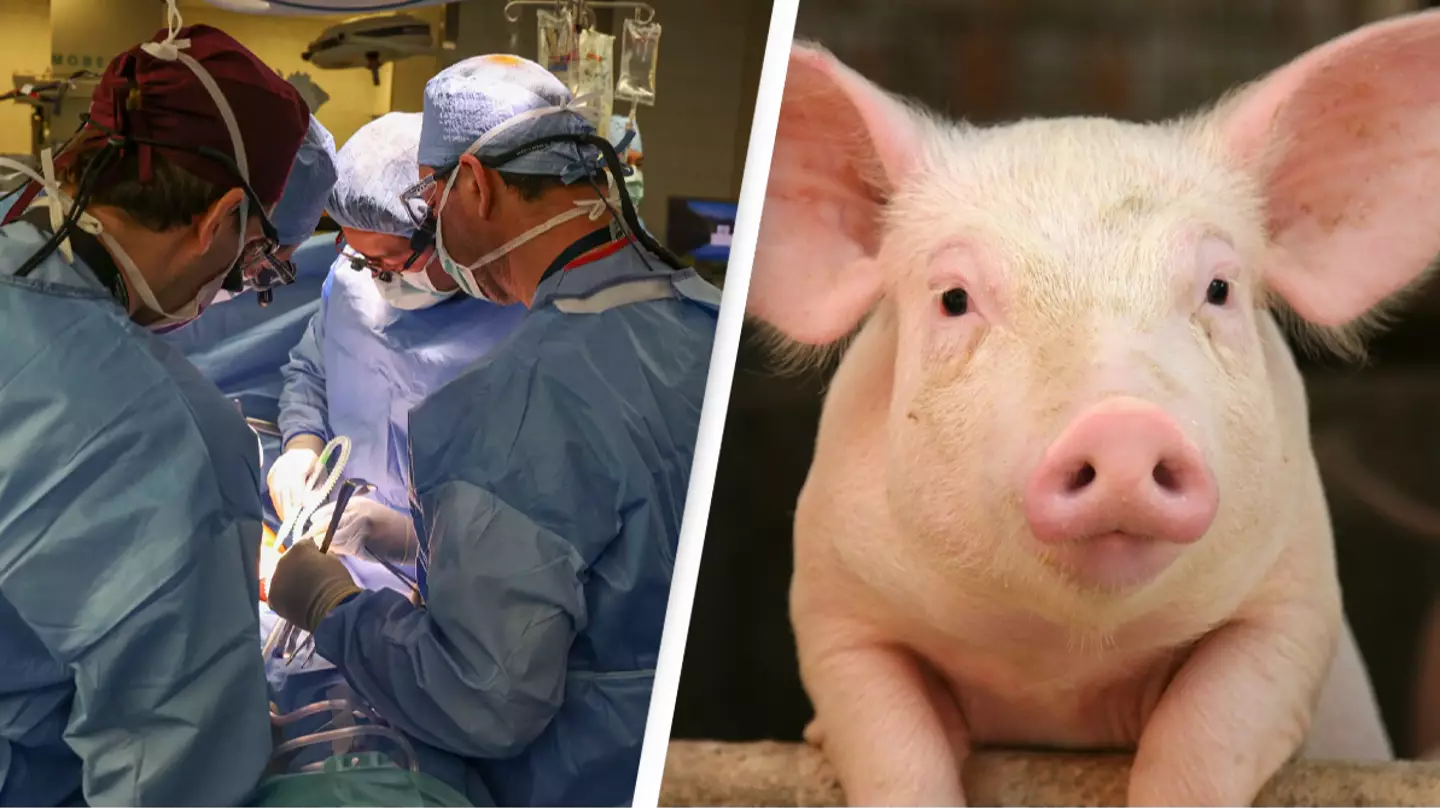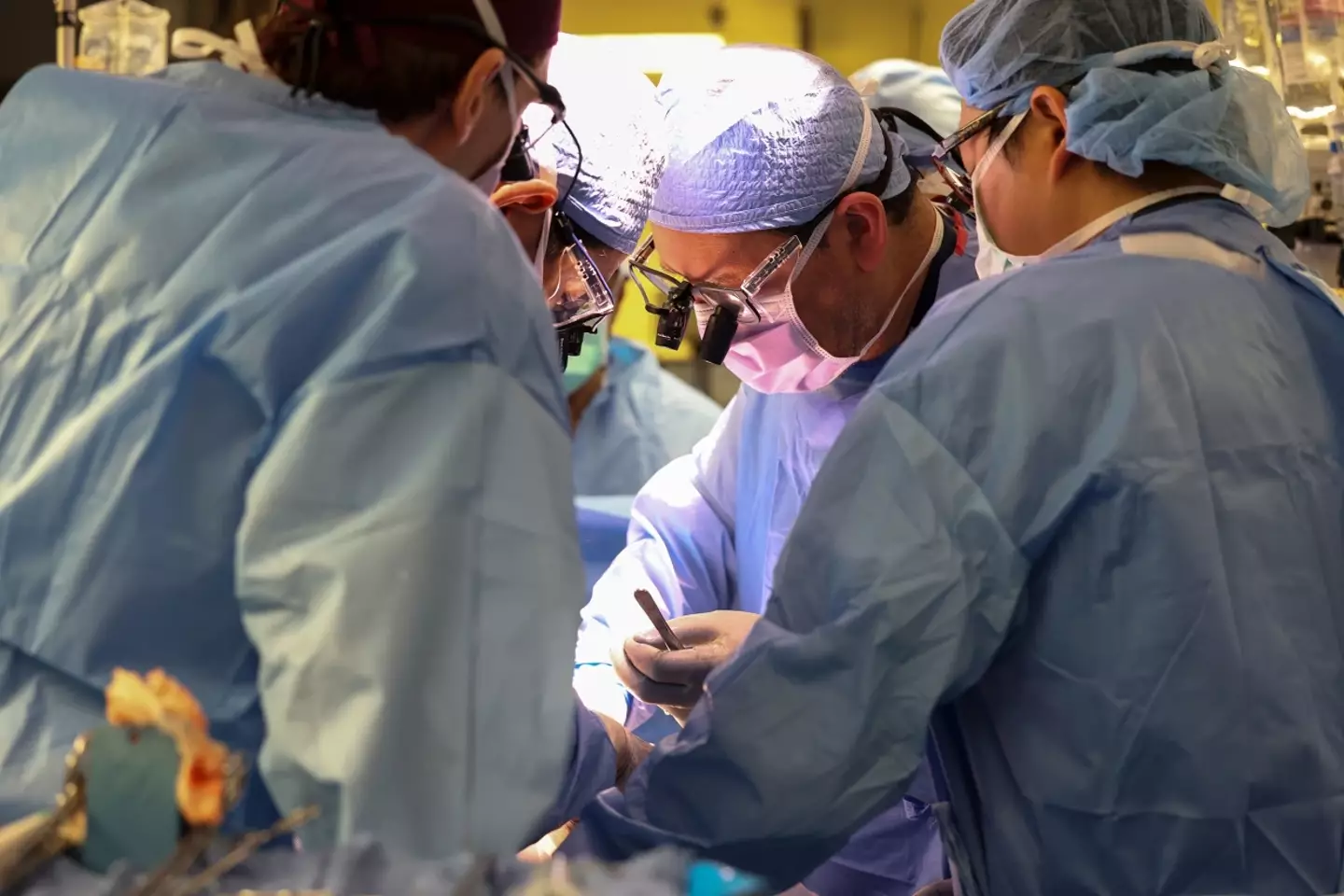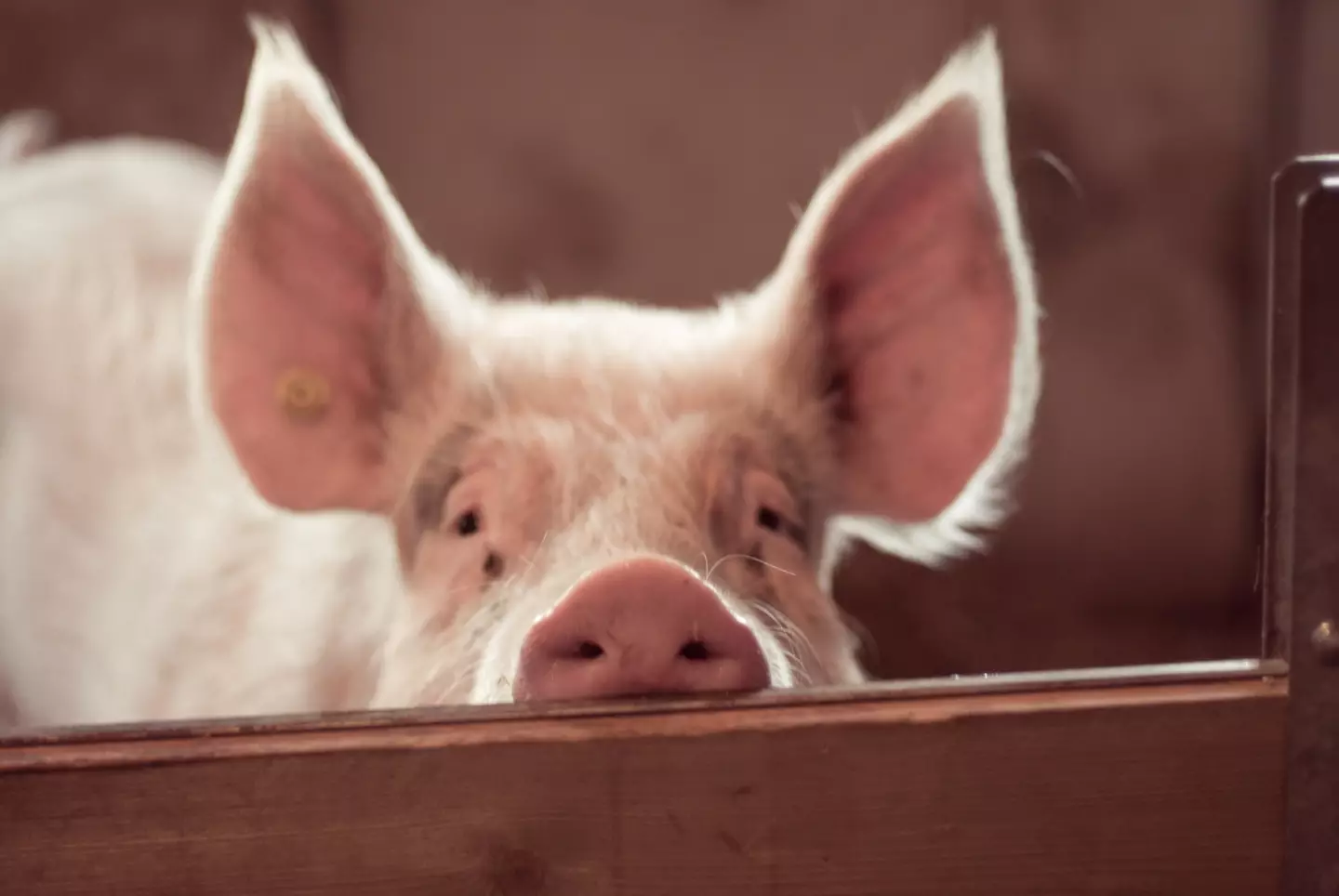
In a move that could provide hope for millions of patients waiting for an organ transplant, a pig kidney has been successfully transplanted into a human for the first time.
Earlier today, it was announced that surgeons at Massachusetts General Hospital in Boston have successfully performed a kidney transplant from a pig to a human for the very first time.
Now, the kidney originally belonged to a genetically modified pig that was specifically created for its organs to be compatible with those of humans. These pigs, bred by a company by the name of eGenesis, came as the result of rigorous experimenting, all of which has seemed to pay off.

The first patient to receive such a treatment, 62-year-old Richard Slayman, is now recovering from his surgery, one that became necessary due to his kidney disease.
Advert
Dr Tatsuo Kawai, the surgeon who performed the operation, said the operating theatre burst into applause when they realised the procedure was a success.
He said: "Right after the restoration of the blood flow to the kidney, the kidney pinked up immediately and started to make urine."
“We are grateful for the courageous contribution of the patient and to the advancement of transplantation science," eGenesis CEO Mike Curtis told NPR.
“This represents a new frontier in medicine and demonstrates the potential of genome engineering to change the live of millions of patients.”

Now, Curtis saying that this could change the lives of millions is no exaggeration - due to a shortage of organs that can be used for transplants, many in need of these procedures are stuck on transplant waitlists for years, with over a dozen waitlisted patients dying every day due to their inability to get the transplant they desperately need.
Advert
Dr. Winfred Williams, Mr. Slayman’s nephrologist, noted that animal organs could help combat health inequality in the realm of organ transplants.
Williams believes that animal transplants could potentially combat 'unequal access for ethnic minority patients to the opportunity for kidney transplants' moving forward if done correctly.
.png)
The use of animal organs in these procedures is not without its potential faults, and many are wary about how safe it is to use such organs even after this breakthrough.
Advert
From fears that diseases could spread to humans to a general stigma around humans utilizing animal organs to survive, there is still work to be done before today’s breakthrough becomes normalized.
As for Slayman, he is said to be doing well after the procedure and should be returning home quite soon.
“I saw it not only as a way to help me, but a way to provide hope for the thousands of people who need a transplant to survive," Slayman noted in a statement from Massachusetts General Hospital.
“[I] trusted my care team at MGH to meet my goals of not just improving my quality of life but extending it."
